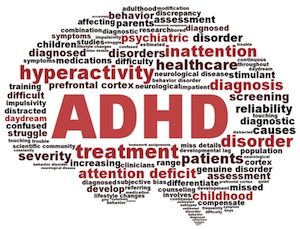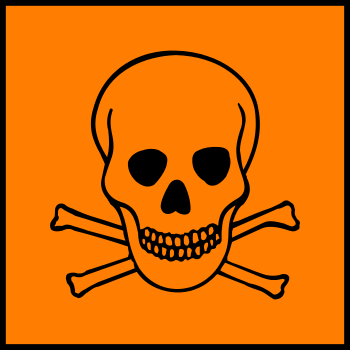 Chemical exposure and ADHD. Is There A Connection?
Chemical exposure and ADHD. Is There A Connection?

Is there a connection between chemical exposure and ADHD?
A growing body of evidence links chemical exposure to the development of ADD/ADHD in children. Some chemicals are more strongly implicated than others and some of the studies are inconclusive. However, the possible connection between toxic chemicals and ADD/ADHD cannot be ignored.
Following is a list of common chemicals implicated in the development of ADD/ADHD.
Phthalates
These ubiquitous chemicals are most often used to soften plastics and in cosmetics, lotions and also present in scented products as “fragrance stabilizers”. Studies have shown that pregnant women who used phthalate-containing cosmetics while pregnant were more likely to report behavioral problems with their children over the course of several years. They have also found that male children can tend to have more feminine behavior patterns. Korean studies have also shown a probable link between phthalate exposure and the development of ADHD.
Pesticides
 The role of pesticides in ADHD is becoming more and more well known. Organophosphates are the specific type of pesticide that is indicated in ADHD, and some telling studies showed the presence of organophosphates in the urine of ADHD-positive children even though the children did not live in an agricultural community. This means that the children were exposed by a means other than proximity to a farm where organophosphates were being sprayed.
The role of pesticides in ADHD is becoming more and more well known. Organophosphates are the specific type of pesticide that is indicated in ADHD, and some telling studies showed the presence of organophosphates in the urine of ADHD-positive children even though the children did not live in an agricultural community. This means that the children were exposed by a means other than proximity to a farm where organophosphates were being sprayed.
Studies show that children with higher levels of organophosphates in their urine are more likely to have the symptoms of ADHD. Organophosphates inhibit a vital brain chemical in insects – acetylcholinesterase, or AChE – resulting in the death of the insect. Research shows that, in humans, if AChE does not function correctly, symptoms of ADHD may result.
Heavy Metals
Exposure to heavy metals is known to have a profound effect on the brain, and research suggests that such exposure may result in ADHD.
* Lead – Several studies have indicated that lead’s interference with neurological function can result in ADHD. Lead paint in old houses and on some imported toys are the usual means of exposure in children.
* Mercury (AKA Thimerisol)- This controversial metal is used as a preservative in certain vaccines and as a component in older dental fillings. It is used in batteries, thermometers, energy efficient light bulbs and other items. Mercury is liquid at room temperature and turns to vapor rather rapidly if it’s heated, so regions, where trash is burned in industrial incinerators, may be at greater risk of mercury exposure. Mercury poisoning sometimes manifests with ADHD-like symptoms.
Cleaning Products
Many household cleaning products come with cautionary labels. As consumers, many of us have gotten so used to these warnings that we may shrug them off, or we figure that if we’re not ingesting them then it’s harmless. But toxic means toxic, and even if you’re not actively ingesting the substance, you and your family may be inhaling and absorbing (through the skin and mucous membranes) low levels of the toxic substance.
Over time, these toxins may accumulate in the body, which might result in ADHD-like symptoms. Because the ADHD does not follow immediately upon exposure to a cleaner, it’s often not considered as a possible cause.
If you have a child or know a child with ADHD, take the time to discover whether or not they are being exposed to chemicals. I can almost guarantee you, the answer will be yes. To what extent, you may not know. But removing the chemical exposure is a must, detoxifying the body and replacing with healthy options will often result in the improvement of overall health and ADHD symptoms, if not eradicate them all together!
I have converted my home cleaning to a brand that is not only safe, but more economical, and environmentally friendly. See what I have done here
To Your Great Health!

Holistic Health Warrior
More Thoughts from Mellisa
Question: What are you without an immune system?
Answer: You are dead.
As morbid as it may sound, it’s true. When your immune system is weak you will get sick. When your immune system completely fails you will die.
If I could show you a way to boost your Natural Killer Cells by up to 437%, would you be interested in hearing more? Of course, you would.
